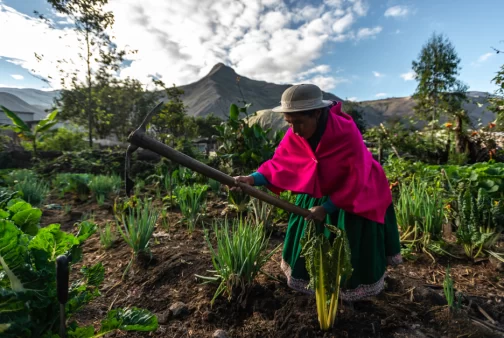Tag: land use

Tenure Security Can Empower Women Farmers and Increase Food Security
Latin America & the Caribbean: Increased tenure security for women farmers can lead to more diversified crop production and better food security, according to new research.
Read MoreAgriculture and COP26: What Do Countries’ Climate Pledges Say About Their Food and Land Sectors?
Global: How countries’ various climate plans will transform their agriculture, food and land use systems – a synopsis of a recent report by the Food and Land Use Coalition which he co-authored.
Read More

